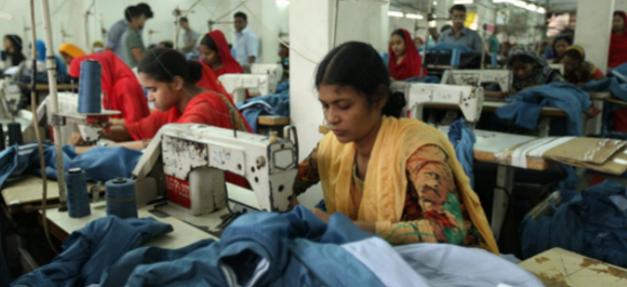Across the globe, brands, manufacturers and employers are becoming more aware of the urgent need to address worker exploitation in global supply chains.
Four years after the Rana Plaza tragedy in April 2013, which claimed the lives of more than 1,100 workers and injured 2,500 more, global trade unions and key players in the fashion industry have moved to renew the Bangladesh Accord for fire and building safety, a three-year legally binding agreement that will enter into effect when the current program expires in May 2018. Currently, the Accord covers more than 2.5 million workers.
As a further step towards the protection of workers, and improving the garment industry, the new Bangladesh Accord was signed in June this year by UNI Global Union (with which the SDA is affiliated) and IndustriALL Global Union, with representatives of signatory brands at the Organisation for Economic Co-operation and Development (OECD) Global Forum on Responsible Business Conduct.
With an expanding number of signatories, this new legally-binding agreement covers more than a thousand Bangladeshi garment factories that supply signatory brands.
Unions’ Importance Recognised
Importantly, the new Accord strengthens the right of workers to organise and join a union, recognising that worker empowerment is fundamental to assuring workplace safety.
It includes enhanced protections for workers whose factories are closed or relocated due to the implementation of the agreement.
It also reserves the possibility of expanding the Accord to sectors other than the readymade garment industry.
Good Work!
The agreement has so far been signed by brands including Kmart Australia, Target Australia, H&M, Inditex (Zara), C&A, Otto, KiK, Aldi South, Aldi North, Lidl, Tchibo, LC Waikiki, Helly Hansen and PVH.
Prior to the announcement, brands including Esprit, Hüren, Bestseller, Wibra, Schmidt Group, N Brown Group, and Specialty Fashion Group Australia committed to signing.
This three-year agreement builds on the achievements of the first Accord. It continues the first Accord’s ground-breaking legally binding framework and commitment to transparency. It also adds new worker protections and ensures that many more factories will be inspected and renovated, as signatory brands add suppliers.
The first Accord saw engineers carry out fire, electrical and structural safety inspections at more than 1,800 factories, identifying 118,500 hazards. 79 per cent of workplace dangers identified in the Accord’s original round of inspections have been remediated.
This article was originally published in The Shop Assistant Journal - Spring 2017: Vol 81, Iss 3.


